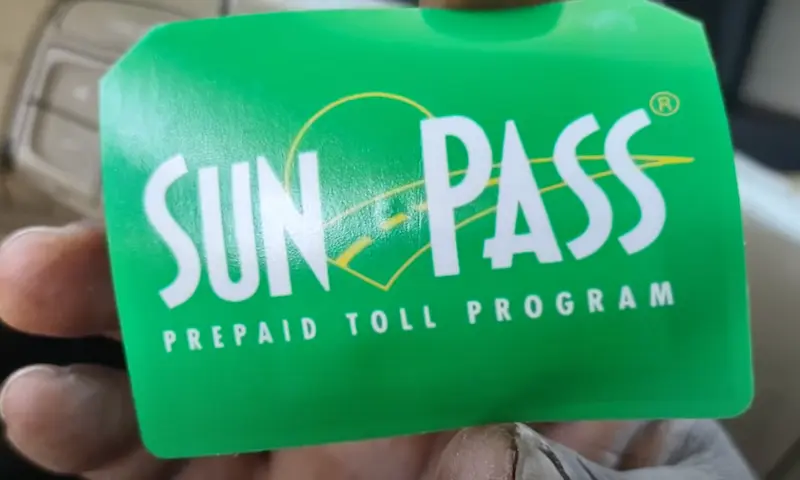Navigating tax deductions can be confusing, especially when it comes to everyday expenses like toll fees. Yes, toll fees can be tax deductible, but only under specific circumstances. Whether you’re self-employed or an employee, understanding when and how you can claim these deductions can save you money. Dive into this article to find out the rules, exceptions, and tips to maximize your tax deductions.
Transportation Expenses and Deductions
When you travel for business, you can deduct various expenses. These include costs related to your car, such as repairs and maintenance, as well as parking fees and tolls. You have the option to choose between using the standard mileage rate or actual expenses for your deductions.
Car Expenses as Business Deductions
If you use your car for business, you can deduct the costs directly. These could be expenses like repairs, fuel, maintenance, and insurance. The IRS allows these deductions to ensure you can reclaim part of your expenses incurred while conducting business.
You can also deduct interest on a car loan if you use the car for business, as long as it’s not listed as a personal expense. Car expenses can significantly reduce your taxable income, making it crucial to track all receipts and costs.
Standard Mileage vs. Actual Expenses
There are two ways you can deduct car expenses: the standard mileage rate or actual expenses. The standard mileage rate is a set amount per mile driven for business purposes. For example, in 2023, it was 54.5 cents per mile.
You also have the option of deducting actual expenses, which include everything from gas and oil to insurance and repairs. You need to keep detailed records and receipts to claim actual expenses. Your choice will depend on which method saves you the most money.
Parking Fees and Tolls
Parking fees and tolls paid while on business are tax-deductible. If you travel frequently for work, these small amounts can add up. Whether you use the standard mileage rate or actual expenses, you can still deduct tolls and parking fees separately.
However, if you are an employee and not self-employed, you cannot deduct tolls due to the Tax Cuts and Jobs Act law changes effective from 2018 to 2025. Always keep receipts or documentation as proof for these expenses.
Specifics of Toll Fee Deductions
Knowing when and how you can deduct toll fees can save you money on your taxes. This section breaks down the conditions under which tolls are deductible, how you calculate these expenses, and what kind of documentation you’ll need.
When Are Toll Fees Deductible
Toll fees are deductible if you incur them while traveling for business purposes. If you are self-employed, you can deduct tolls for trips that are directly related to your work. Employees, on the other hand, can’t deduct tolls, even if they’re not reimbursed by their employer, due to changes in tax laws from 2018-2025.
It’s important that the tolls are for business travel, not regular commuting to your main workplace. For example, if you drive to meet clients, pick up supplies, or attend work-related events, you can deduct tolls for these trips.
Calculating Toll Expenses for Deduction
When calculating toll expenses for your taxes, you need to separate personal travel from business travel. The IRS allows you to use either your actual toll costs or the standard mileage rate plus tolls. For business travel, you’ll add up all the toll charges specifically incurred for those trips.
If opting for the actual expenses, keep detailed records of each toll. You might find it useful to use apps or spreadsheets to track these costs. If you use the standard mileage rate, calculate it by multiplying the business miles driven by the current rate, then add the toll fees.
Recordkeeping and Documentation of Toll Expenses
Proper recordkeeping and documentation are crucial to ensure you can claim toll fees. Always keep receipts or electronic records for each toll transaction. These should show the date, amount, and purpose of the toll charge.
A logbook can help you track your trips. Note each business-related drive, including the reason for the trip and the toll expenses. Whether you file taxes through software or with an accountant, having organized records eases the process and supports your deductions in case of an audit.
Using apps to consistently track and save toll receipts digitally can be a practical approach. This helps avoid losing paper receipts and ensures that you have accurate records of all deductible toll fees.
Deductions for Business Owners and Self-Employed
As a business owner or self-employed individual, you have several ways to deduct toll fees and other expenses. Two key areas to consider are the use of your car for business purposes and maintaining a home office or business location.
Schedule C and Business Use of Car
If you are filing as a sole proprietor, you will likely use Schedule C (Form 1040) to report your income and expenses. When you use your car for business travel, you can deduct toll fees.
You can choose between the standard mileage rate or the actual expense method to claim car expenses. The standard mileage rate covers gas, maintenance, and tolls. To use the actual expense method, you need to keep detailed records of all your car expenses.
Important Points:
- Standard Mileage Rate: Simplifies record-keeping.
- Actual Expense Method: Requires detailed records but can offer larger deductions.
- You must keep track of your business-related tolls and other car expenses.
Home Office and Business Location
If you work from a home office or have a separate business location, you might be eligible for additional deductions. Remote business owners can also claim deductions for travel between their home office and other work sites.
For example, if you drive to meet clients or suppliers, those travel expenses, including tolls, are deductible. To qualify for the home office deduction, your office space must be regularly and exclusively used for business purposes.
Key Considerations:
- Regular and Exclusive Use: The space must be your primary place of business.
- Travel Between Sites: Deductions apply for travel from your home office to other work locations.
- Business Location: Deduct tolls if traveling between a home office and other necessary business sites.
For more details on these deductions, visit the IRS page on business use of car or business travel expenses.
Additional Deductible Expenses
When handling your finances, it’s important to know what other car-related expenses you can deduct along with toll fees. Key areas include parking, repairs, maintenance, insurance, and registration fees. These deductions can save you money if you use your car for business purposes.
Parking, Repairs, and Maintenance
When you use your car for business, you can deduct parking fees. For example, if you have to park downtown for a meeting, those fees are deductible. Costs for repairs and maintenance are also deductible. This includes oil changes, replacing tires, and other minor repairs.
Regular maintenance like engine tune-ups or brake checks are essential. Not only do they keep your car running smoothly, but they also qualify as deductible expenses. Keeping detailed records of these costs will help at tax time.
The key is that these expenses must directly relate to your business use. Personal use expenses aren’t deductible, so make sure to properly log your business trips and related costs.
Insurance, Registration Fees, and Other Car Expenses
Business-related car insurance is deductible. Ensure your policy covers business use to claim these premiums. If your car is registered for business, you can also deduct the registration fees.
Other deductible car expenses include gas and oil specifically used for business trips. Document your mileage accurately and keep all receipts. This can help if you get audited.
Additionally, you can deduct costs for general maintenance expenses. This includes any expense necessary to keep your car in good working condition. Again, clear record-keeping is crucial to claim these deductions accurately.
By understanding these deductions, you can maximize your savings. Proper documentation and distinguishing between personal and business use are key.
















